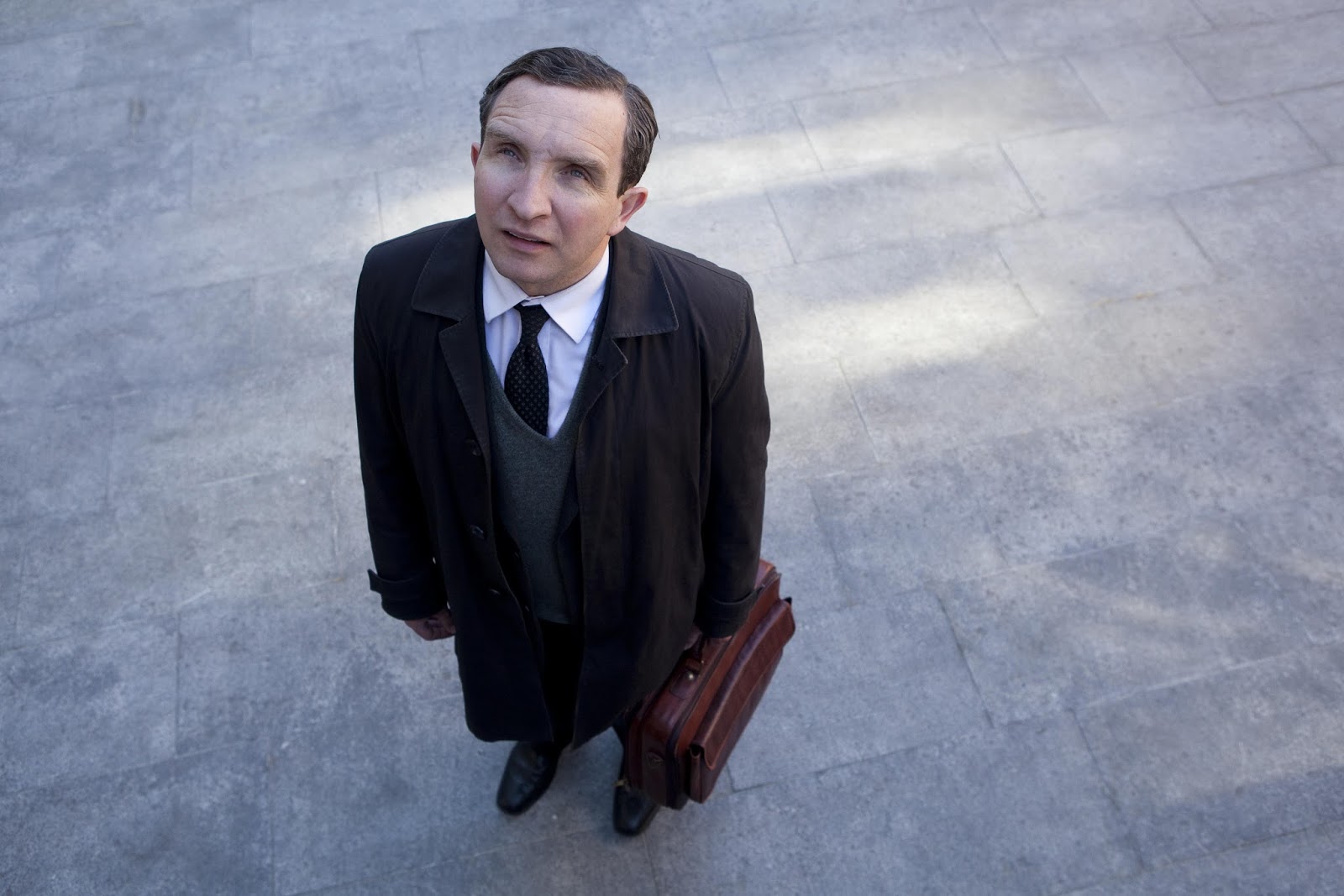There were only two of us at last week's press screening of STILL LIFE -- it was a particularly cold, bleak winter's day -- and both of us were in tears by the film's amazing ending. As the lights came up, post-credits, the other fellow seemed taken aback. "Who is this Uberto Pasolini?" (the film's writer/director), he asked, and then quickly followed with, "Because nothing is his past history gives any indication that he could create this!"
Well, the man did produce the Award-winning and immensely popular, The Full Monty nearly twenty years ago, and he was involved with a few other pleasant little movies along the way. Still Life is only his second film as writer/director -- after something called Machan which I have not seen -- but if he does nothing else in his entire life, this film is enough to ensure Pasolini's place (the filmmaker is shown at left) in the pantheon of movie greats. Why? Because he has taken a grand and important subject, death -- and thus life and its meaning, at least for those of us living in western society today -- and explored it in an immac-ulate, moving, insightful and profound manner. The result is a humble little film that works on every level, and that will leave you in a state of grace.
His movie begins at a funeral. And then another. And another. These are empty of any mourners save one -- the fellow who actually organized the funeral, a British public servant named John May, whose job it is to try to find any relatives and or friends of those in the population who have lately died alone. As played by the great British everyman, Eddie Marsan (shown above and below), who may here be giving his finest performance from a versatile flock of them, this strange and obsessive man may be the most memorable character you've met in several movie years.
John May is as methodical and fastidious as the movie is quiet and assured. From the manner in which he collects and stores photos of the many deceased citizens he serves to the way he crosses the street, every-thing he does is careful and coordinated, and Marsan is a joy to observe: funny and so sadly human. He lives a life of stillness -- one indication of the movie's title -- and Pasolini captures this in truly wondrous ways.
May seems to have no family nor friends of his own, but his interactions with all the folk he meets are lovely and kind, never pushing, but always encouraging. Due to both downsizing and the great amount of time he spends on each new case, John is soon to be out of a job. His last case, however, so tweaks his concern that he must follow it through -- even if this is done on his own time and dollar (or, in this case, pound). Where this latest situation leads him, and us, is into a whole new level of engagement.
Along the way, the movie -- which knows all about the life of the lonely and how they manage -- covers everything from the way in which animals fill our need for love and connection to how even angry, short-tempered people can manage to form a bond with others.
Signore Pasolini's storytelling skills are fluent, while his sense of visual style is simply stunning. Frame after beautiful frame seems like still life photos given enormous immediacy and feeling via the talented cast the filmmaker has assembled. The movie is a kind of mystery -- initially regarding what is happening and why and then about how our hero will finally piece together all he needs to find the friends and/or family of this final case.
Chief among the actors is the recent Golden Globe award-winner Joanne Froggat, above and above, as a young woman who figures into the last case (she is, as usual, wonderfully compassionate and winning) and Andrew Buchan as May's immediate boss, who fills the bill perfectly as a man who understands the need for efficiency but has not an empathetic bone in his body.
Still Life builds and builds, but always quietly and gently, until it reaches its stunning conclusion. And just when you imagine that you have experienced and understood its meaning and concerns, Pasolini pulls a kind of coup de cinéma that reaches right into you, probing the deepest part of your spirit and mind, leaving you amazed, moved, chastened and spent. It's like nothing I've yet experienced on the screen. It left me literally sobbing -- for what we've just seen, of course -- but also for the whole of humanity: the wonders of life, and connection, and death.
From Tribeca Film and running just 93 minutes, the movie opens this Friday at New York City's Quad Cinema and in Geneva, New York, at the Smith Center for the Arts. In the weeks to come it will open in another dozen cities around the country. Click here and then scroll down to see the list of playdates and theaters.















No comments:
Post a Comment